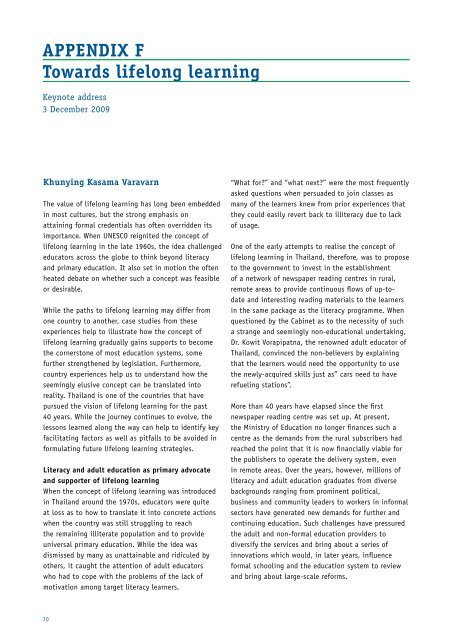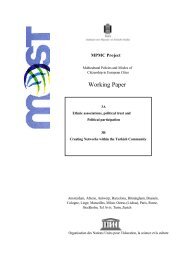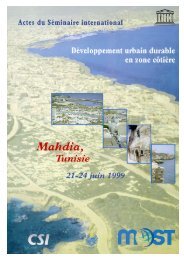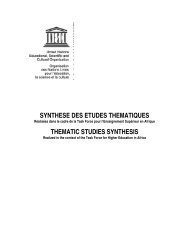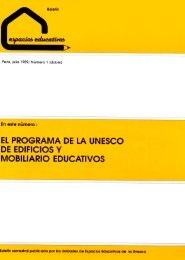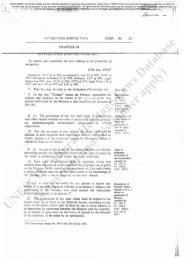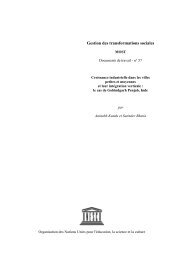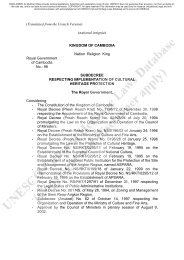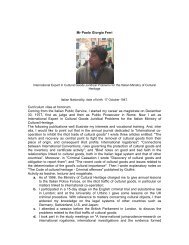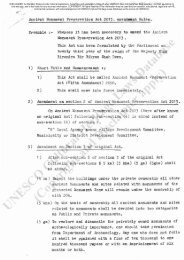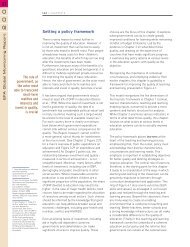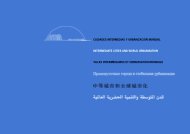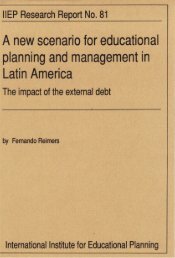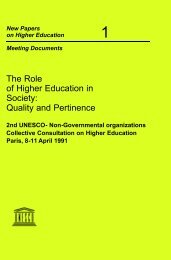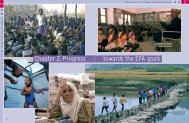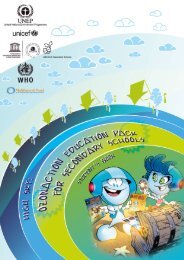CONFINTEA VI, final report - Unesco
CONFINTEA VI, final report - Unesco
CONFINTEA VI, final report - Unesco
Create successful ePaper yourself
Turn your PDF publications into a flip-book with our unique Google optimized e-Paper software.
APPENDIX F<br />
Towards lifelong learning<br />
Keynote address<br />
3 December 2009<br />
Khunying Kasama Varavarn<br />
The value of lifelong learning has long been embedded<br />
in most cultures, but the strong emphasis on<br />
attaining formal credentials has often overridden its<br />
importance. When UNESCO reignited the concept of<br />
lifelong learning in the late 1960s, the idea challenged<br />
educators across the globe to think beyond literacy<br />
and primary education. It also set in motion the often<br />
heated debate on whether such a concept was feasible<br />
or desirable.<br />
While the paths to lifelong learning may differ from<br />
one country to another, case studies from these<br />
experiences help to illustrate how the concept of<br />
lifelong learning gradually gains supports to become<br />
the cornerstone of most education systems, some<br />
further strengthened by legislation. Furthermore,<br />
country experiences help us to understand how the<br />
seemingly elusive concept can be translated into<br />
reality. Thailand is one of the countries that have<br />
pursued the vision of lifelong learning for the past<br />
40 years. While the journey continues to evolve, the<br />
lessons learned along the way can help to identify key<br />
facilitating factors as well as pitfalls to be avoided in<br />
formulating future lifelong learning strategies.<br />
Literacy and adult education as primary advocate<br />
and supporter of lifelong learning<br />
When the concept of lifelong learning was introduced<br />
in Thailand around the 1970s, educators were quite<br />
at loss as to how to translate it into concrete actions<br />
when the country was still struggling to reach<br />
the remaining illiterate population and to provide<br />
universal primary education. While the idea was<br />
dismissed by many as unattainable and ridiculed by<br />
others, it caught the attention of adult educators<br />
who had to cope with the problems of the lack of<br />
motivation among target literacy learners.<br />
70<br />
“What for?” and “what next?” were the most frequently<br />
asked questions when persuaded to join classes as<br />
many of the learners knew from prior experiences that<br />
they could easily revert back to illiteracy due to lack<br />
of usage.<br />
One of the early attempts to realise the concept of<br />
lifelong learning in Thailand, therefore, was to propose<br />
to the government to invest in the establishment<br />
of a network of newspaper reading centres in rural,<br />
remote areas to provide continuous flows of up-todate<br />
and interesting reading materials to the learners<br />
in the same package as the literacy programme. When<br />
questioned by the Cabinet as to the necessity of such<br />
a strange and seemingly non-educational undertaking,<br />
Dr. Kowit Vorapipatna, the renowned adult educator of<br />
Thailand, convinced the non-believers by explaining<br />
that the learners would need the opportunity to use<br />
the newly-acquired skills just as” cars need to have<br />
refueling stations”.<br />
More than 40 years have elapsed since the first<br />
newspaper reading centre was set up. At present,<br />
the Ministry of Education no longer finances such a<br />
centre as the demands from the rural subscribers had<br />
reached the point that it is now financially viable for<br />
the publishers to operate the delivery system, even<br />
in remote areas. Over the years, however, millions of<br />
literacy and adult education graduates from diverse<br />
backgrounds ranging from prominent political,<br />
business and community leaders to workers in informal<br />
sectors have generated new demands for further and<br />
continuing education. Such challenges have pressured<br />
the adult and non-formal education providers to<br />
diversify the services and bring about a series of<br />
innovations which would, in later years, influence<br />
formal schooling and the education system to review<br />
and bring about large-scale reforms.


